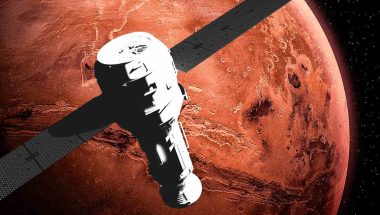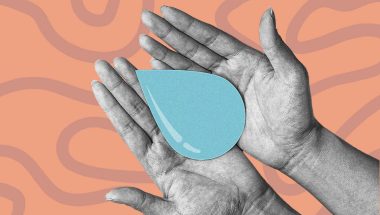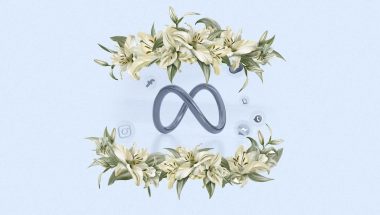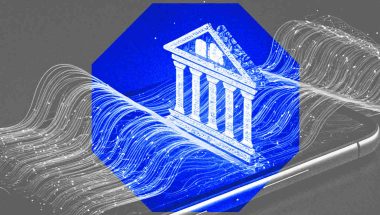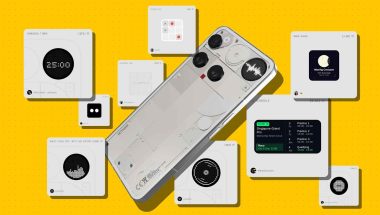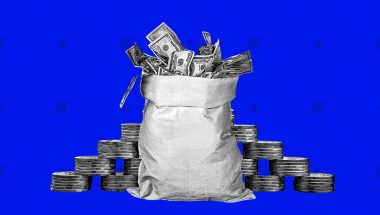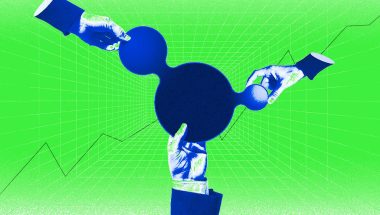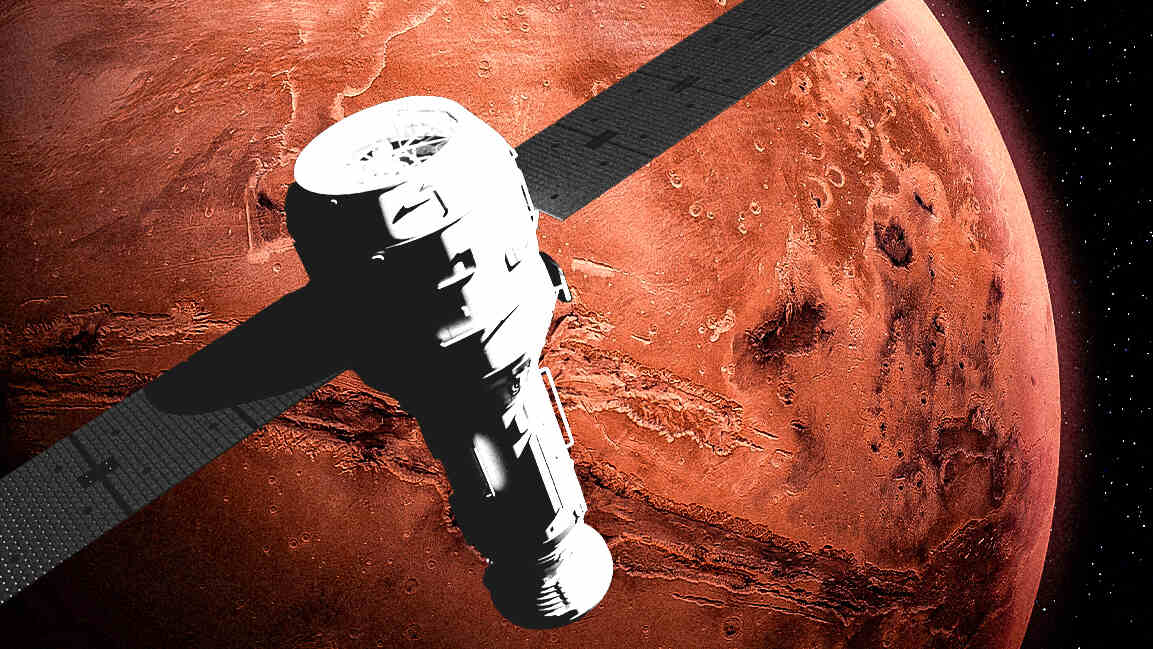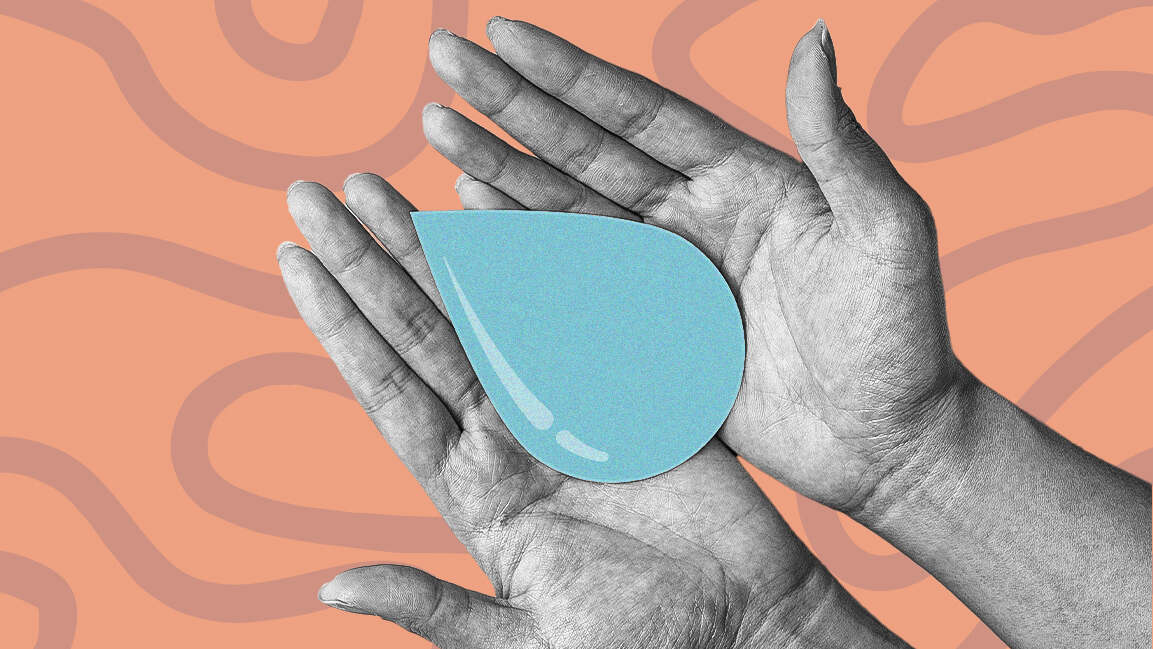- | 8:00 am
Jibble, jibble! Why Doja Cat is the new model for celebrity brand-partnership success
Doja Cat’s new JBL campaign is the latest example of how the artist winningly balances her commercial and creative lives.
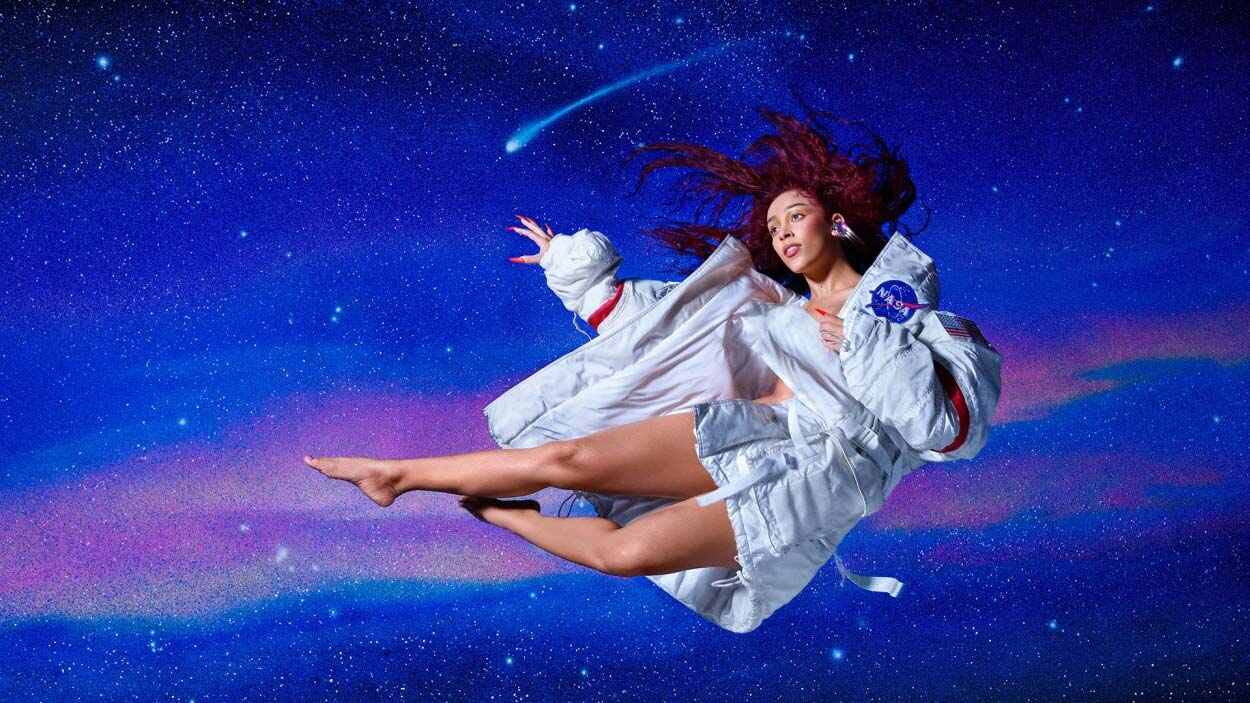
Back in April, before she provided one of the most memorable moments of the 2022 Grammys—rushing back from the bathroom to accept the trophy for Best Pop Duo/Group Performance with SZA for their hit “Kiss Me More”—Doja Cat posted a short TikTok video from her dressing room. It’s just a closeup of her holding up a glittery, crystal-encrusted custom JBL Clip portable speaker, and saying “Jibble! Jibble! Jibble!”
It may not be how the brand pronounces its name, but for JBL, it translated into one of its most significant and successful social moments. That, combined with Doja Cat taking the speaker on the red carpet with her (it matched her dress), gave the brand two years’ worth of social engagement in about three days.
Bill Wyman, vice president of integrated marketing for JBL, says that in the past, when brand people would hear something like “Jibble, jibble, jibble,” someone would’ve called up and said, “She said jibble and not J-B-L, what do we do?!”
“Now, it’s perfect,” Wyman says. “It’s her. And if we tried to stifle that, it would really come across as someone shilling a product, rather than her really liking this brand.”
Doja Cat is merely “connecting with her fans,” he adds, “and we want her fans to be our fans, and the only way to do that is to let her be herself. That’s what unlocks the magic. This is the new benchmark for what partnerships need to look like, and for what partnerships can deliver.”
That moment was all about Doja Cat announcing herself as JBL’s new brand ambassador, and this week the brand launched its first official work with the artist. The new spot focuses on her fans, the very people with whom JBL is aiming to connect. Talking to Wyman about it–and JBL’s work with Doja Cat overall–got me thinking about the evolving nature of brand partnerships with celebrities and artists, and how in many ways, Doja Cat is the new model for what they should look like.
We’ve seen it with her work on Taco Bell, which went from random tweet-chirping to an official partnership, and the return of Doja’s beloved Mexican Pizza. Now we’re seeing the same thing with JBL. These are two major brands that have chosen to cede control of their image and messaging in favor of encouraging an artist who genuinely uses and likes their products just to do her thing.
In the not-so-distant past, celebrities and artists were most often treated by brands as glorified billboards. Hold this and smile. As social began to emerge as the dominant force of our daily media diet, there were some hiccups, as the transparency of social media butted heads with an older school of PR. We all remember the time in 2013 when newly minted Blackberry “creative director” Alicia Keys tweeted from her iPhone (and subsequently claimed it was a hack). Back then, the biggest risk that brands saw in any partnership was if that person said or did something offensive in public. Now, perhaps the most offensive thing that person could do in public is not actually be a fan or user of that brand’s products.
DON’T TELL ME, SHOW ME.
That type of genuine connection between brand and celebrity is also part of the proliferation of celebrity stakeholders and investors, giving them an ownership stake in the work they do for a brand. Drake and Dave’s Hot Chicken. Beyoncé and Lemon Perfect. Naomi Osaka and Sweetgreen.
“Gen Z and millennial consumers have reported to be more focused on buying from brands that align with their core values,” says Joel Samuels, who works in Talent Ventures at Endeavor. “Their ability to understand the ‘why’ behind a celebrity partnership is just as important as the product that’s being sold.” Samuels also notes that these types of partnerships add value by going far beyond the ol’ smile and wave as the talent advises on brand and product strategy and generates unique marketing content
Doja Cat isn’t an investor in JBL or Taco Bell, but the sentiment of having skin in the game remains. For a bit more perspective, I called Nick Pacelli, who heads up brand partnerships at Doja Cat’s management company Salxco, whose roster also includes The Wknd, French Montana, and Ty Dolla Sign. Pacelli’s been on both sides of the table, working in the past at such ad agencies as Translation, Goodby Silverstein & Partners, and TBWA/Chiat/Day, so he has seen this evolution happen from the perspective of both the brand and the artist.
For brands, it’s been about becoming less risk averse when it comes to worrying about whether a celebrity might say the f-word in public and more about ensuring the ties between them are real. Contracts and exclusivity clauses are much more aggressive than ever before. “I can call Taco Bell and say, ‘Hey Doja Cat really loves Taco Bell,” and in the past, they’d probably take my word for it,” says Pacelli. “Now brands are saying ‘Prove it.’ Has the artist ever tweeted at us? Has the artist ever posted from inside our store or restaurants? I have to prove that there is a real, organic, and authentic connection there. I had a call from a brand yesterday and they said, ‘Does this artist genuinely use my product? Don’t tell me, show me.’”
CREATIVE CONTROL
For artists, meanwhile, their measures for successful work with brands now go far beyond the size of the paycheck. After all, they’re managing their own personal brand, too. Pacelli says the No. 1 thing on any artist’s list when it comes to brand partnerships is creative control. But too often, brands still come in with a fully formed idea, simply looking to slot the artist in.
“In those cases, it’s much less appealing to the artist, and I don’t do a lot of those because it immediately tells me this is a one-way partnership, this isn’t a collaboration, you’re just hiring us for services,” says Pacelli. “You want to work with my client for very specific reasons, but then you don’t want to hear what my client has to say? It doesn’t make any sense.”
For both Taco Bell and JBL, these brands came in and approached it as an opportunity to tap into Doja Cat’s ideas and opinions. I’ve had similar conversations with McDonald’s CMO Morgan Flatley about how difficult it was for that brand to loosen its reins a bit to allow Travis Scott to be more creatively playful in his merch and apparel collaboration with the fast-food giant. Without that relaxation, they never would’ve had a Chicken McNugget pillow that sold out immediately, and all the pop-culture cachet that came with it. That experience proved worthwhile, and became the benchmark for future Famous Order collabs with such artists as BTS and Saweetie.
“The win for the artist, and when they really lean in, is when a brand comes in and says, ‘Hey, we have creative ideas, but we want to treat that as a thought starter. How would you do it? How do you want to play with our brand?’” says Pacelli. “Forward-thinking brands are the ones who are winning with these types of collaborations. The most progressive marketers get it, and are approaching it as a creative collaboration.”
More brands are catching on. Last month, Doja Cat was on IG Live talking about her two new puppies, whom she named Malibu and Barbie. You’ll never guess which brand was calling Pacelli the next day, looking for how they can get a jibble, jibble, jibble moment of their very own.








